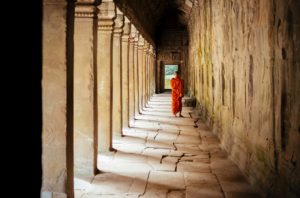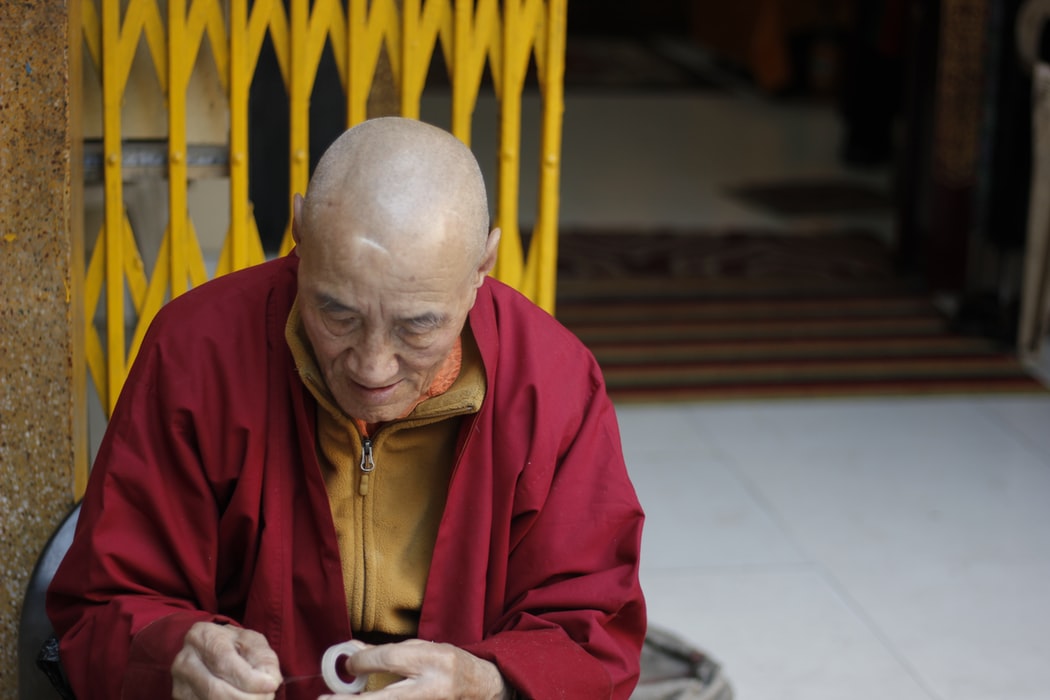Some of the more notable aspects of most religions are that they compete with each other for believers, they dispute one another’s truths, they each claim to be the only way to their particular version of heaven, and they are defensive against outside criticism.
Buddhism is different. To begin with, Buddhism is centered on your personal experience of life. Some central truths are expounded, but your acceptance of these truths is always grounded in testing them for yourself. The Buddha points towards a particular path, but it is a path that you must walk yourself; no-one including the Buddha can walk it for you. However, the path is a tool that can be discarded once the goal of nibbana is achieved; it is not an end in itself.
In the Digha Nikaya, the Buddha indicates that disputes between different religions are foolish and he told his followers that if others criticized their path, they should not take offense or seek to retaliate but to simply point out any respect in which they were being misrepresented.
Buddhism ‘accepts’ other religions
However, it isn’t entirely correct to say that Buddhism ‘accepts’ other religions.
Buddha himself was critical of both the eternalists and annihilationists of his day, as well as numerous other systems of belief. He claimed that truth cannot be systematized but can only be experienced. He disparaged miracles as a basis for belief, asserting that truth should be sufficient in itself. He also discouraged speculation regarding matters that were irrelevant to the pursuit of nibbana, such as whether or not the world was eternal. He discouraged reliance on rituals and sacrifices but instead encouraged his followers to question what they were told and to test it, even things that he told them. ‘Right View’ is part of the Noble Eightfold Path, and the existence of Right View implies that there is also such a thing as the Wrong View. It is only through testing things for ourselves that we can sort out the wheat from the chaff.
 Most contemporary religions, including the three major monotheistic religions, would fail these tests. In general, they are based on bodies of dogma which you are expected not to question and historically they have violently punished dissenters. Their evidence for their truth is tradition and speculation rather than direct experience.
Most contemporary religions, including the three major monotheistic religions, would fail these tests. In general, they are based on bodies of dogma which you are expected not to question and historically they have violently punished dissenters. Their evidence for their truth is tradition and speculation rather than direct experience.
However, it would probably be more accurate to say that Buddhists are indifferent to other religions. Their focus, particularly in the West is to follow their own path and to seek nibbana and let other people believe what they wish. Individual autonomy is valued. Compulsion and argument are not. Once you experience the truth for yourself, faith, belief, and reliance on authority are not necessary.
From the point of view of what the Buddha discovered, there doesn’t appear to be a lot of truth in other religions. They appear to be lists of moral rules and articles of faith without any grounding in individual experience. However, to the extent that adherents of other religions attempt to do good in the world, Buddhists are happy to collaborate with them.
While some contemporary Buddhist teachers express some appreciation of Christianity, for the most part, this is based on the humanitarian activities of Christians in the world than on any knowledge of the teachings of Jesus or on Christian dogma. The idea that Jesus can save you is in direct contradiction to the Buddhist emphasis on personal autonomy (although Pure Land Buddhists might disagree.)
In some ways, the attitude of Buddhists towards other religions parallels the attitude of astronomers to astrologers. Astronomers are too busy studying the realities of the Universe for themselves than to waste time arguing with astrologers.





